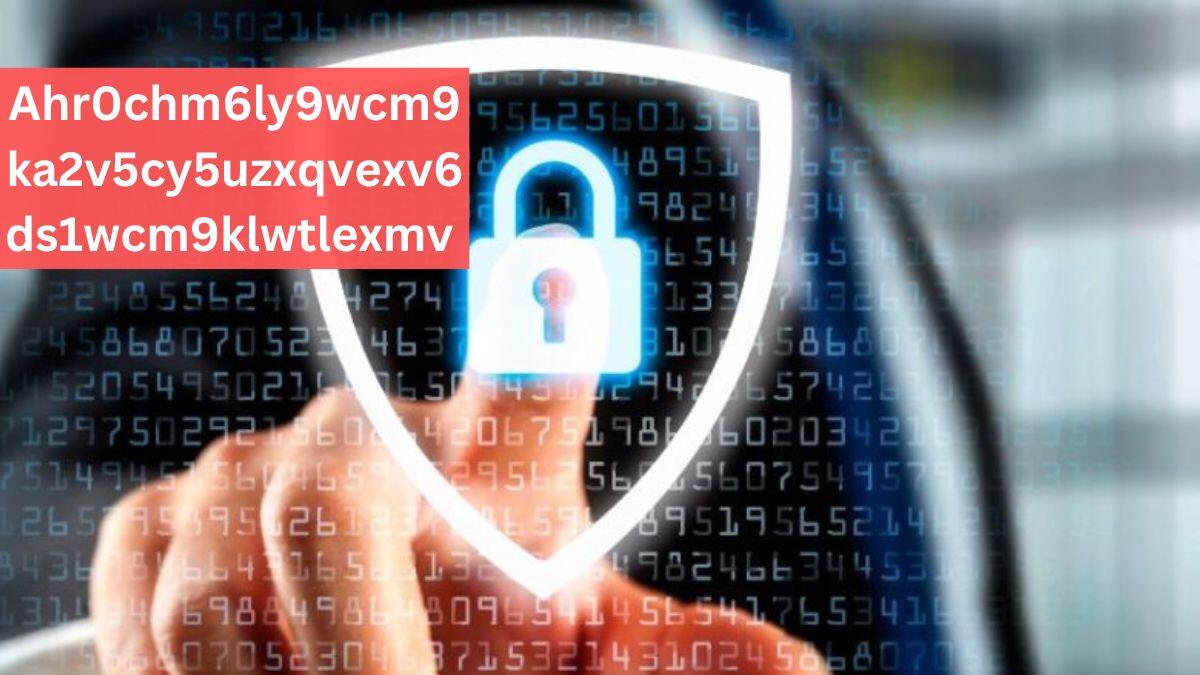The term “stalkerpacient1887” doesn’t seem to correspond to any widely recognized concept, entity, or username in public records, making it somewhat of an enigma. As it doesn’t appear in common knowledge or conventional sources, we are left with many questions about its origin, meaning, and potential implications. Is it a typographical error? A specialized term from a specific field? Or perhaps it’s part of a new online phenomenon that hasn’t yet gone mainstream?
In this article, we aim to explore the term “stalkerpacient1887” by approaching it from various angles. We’ll analyze possible interpretations, potential connections to known terms, and offer insight into how this term could be relevant to various audiences, particularly in the context of online culture, data, and even mental health. We’ll also clarify potential issues with spelling and naming conventions that may impact searches for this term.
What Is “Stalkerpacient1887”?
At first glance, “stalkerpacient1887” seems like a unique or obscure term, but we need to break it down to understand its components. The word itself is a fusion of two likely elements: “stalker” and “pacient.”
- Stalker: The term “stalker” typically refers to someone who obsessively follows or harasses another person, often leading to psychological distress for the victim. In a broader sense, it can be used to describe someone who is overly persistent or invasive in their behavior, whether online or offline. In the digital age, online stalking has become a common problem, and many social media platforms and websites have policies to protect users from stalkers. In fact, stalking is considered a serious offense in many parts of the world, including the USA.
- Pacient: The term “pacient” is an uncommon variation of the word “patient.” “Patient” refers to someone receiving medical care or treatment. In some cases, “pacient” might be a typo or an alternative spelling, although it’s not widely used in English-speaking regions.
- 1887: The number could signify a year, a part of a code, or even an arbitrary identifier. There’s no immediate significance to the year 1887 that stands out in relation to the words “stalker” and “pacient,” so it’s possible that the number is simply a unique element added to give the term distinctiveness.
Given these definitions, we might hypothesize that “stalkerpacient1887” refers to a concept related to a patient who is being stalked or harassed, or perhaps even a metaphorical use of the term to describe someone whose online or real-life privacy is under threat. But the exact meaning remains unclear without more context.
Breaking Down Possible Interpretations of “Stalkerpacient1887”
- Online Stalking and Digital PrivacyIn today’s internet age, privacy is a growing concern. Online stalking, or cyberstalking, is a rising problem for many individuals. This form of harassment can involve persistent unwanted attention, threats, or spreading false information about someone online. If “stalkerpacient1887” refers to someone being stalked, it could be a reflection of the dangers posed by digital platforms where users’ personal lives can be exposed to others without their consent. The 1887 part of the term could symbolize a year or be connected to a historical context of personal privacy laws or significant events in surveillance practices.This interpretation would be highly relevant to modern discussions around data privacy, cybersecurity, and mental health in the digital age. Many people, particularly in the USA, are concerned about their safety and the implications of sharing personal information online. With incidents of online harassment on the rise, understanding and identifying threats like “stalkerpacient1887” becomes increasingly important.
- Medical Context: A Metaphorical InterpretationAnother possible interpretation could be medical. “Pacient”, as a variation of the word “patient,” might hint that the term refers to someone under medical care or perhaps someone vulnerable to manipulation or undue attention. In this sense, “stalkerpacient1887” could be a reference to a vulnerable patient who is stalked by an intrusive medical professional or even a digital system. It could reflect concerns about the ethical boundaries of patient care and the intrusion of personal space in healthcare environments.Mental health professionals, medical practitioners, and even patients themselves may find this concept relevant, particularly as digital health tools and telemedicine platforms grow in popularity. When health information is shared online, there is always the risk that personal data could be misused. This kind of misuse could lead to identity theft, medical fraud, or even patient-targeted scams, all of which pose significant risks to individuals’ well-being.
- Cultural or Fictional Reference“Stalkerpacient1887” could also be a creative or fictional reference, such as a character name in a book, movie, video game, or an internet meme. In this case, the number 1887 might be a key element tied to a particular fictional universe or timeline. Sometimes, numbers are used in fictional settings to evoke mystery or significance, and “stalkerpacient1887” could be part of a larger story or theme.Popular culture is replete with references to obsessive behaviors, including stalking, mental illness, and privacy violations, and “stalkerpacient1887” could be a creative spin on these themes. It’s possible that the term is being used in a niche fandom or in discussions of digital culture and behavior.
The Relationship Between Stalking, Privacy, and Technology
As technology has advanced, so too have the tactics used by stalkers and other malicious actors. Digital tools such as social media, location-sharing apps, and even smartphones have given rise to new forms of stalking—particularly in the form of cyberstalking. But beyond individual privacy concerns, there’s also the growing issue of mass surveillance, data collection, and the role of technology in modern life.
With the increasing sophistication of technology, it’s crucial to understand how individuals’ personal information is being tracked, shared, and sometimes misused. Data breaches, where personal information is stolen or exposed, are common in today’s digital landscape. The stalkerpacient1887 concept could reflect a deeper conversation about these practices and their potential to harm individuals in vulnerable situations.
Moreover, mental health and privacy are deeply intertwined. Studies have shown that online harassment, including stalking, can lead to long-term psychological effects, including anxiety, depression, and PTSD. In a digital world where nearly every part of our lives is online, the line between the public and private spheres has become increasingly blurred. This context adds layers to the potential meaning of “stalkerpacient1887.”
How to Stay Safe Online: Tips to Protect Yourself?
While “stalkerpacient1887” may not be a widely recognized term, the concepts of online stalking and privacy breaches are real concerns. Here are some tips to protect yourself from becoming a target of online harassment or stalking:
- Be Mindful of What You Share: Avoid posting sensitive personal information, including your location, daily schedule, and personal identifiers (e.g., phone number, address).
- Use Strong Passwords: Make sure your online accounts are secured with strong, unique passwords to prevent unauthorized access.
- Enable Two-Factor Authentication: Protect your accounts with two-factor authentication (2FA) for an added layer of security.
- Monitor Your Online Presence: Regularly search your name online to see what information is publicly available about you.
- Report Suspicious Behavior: If you feel you’re being stalked or harassed online, report the behavior to the platform, law enforcement, or a trusted authority.
The Impact of Online Harassment on Mental Health
Online harassment—including stalking—can have a significant psychological impact on its victims. The emotional and mental toll of being stalked online can lead to anxiety, depression, and even post-traumatic stress disorder (PTSD). Victims of cyberstalking often feel powerless and may experience increased fear and isolation.
Given that digital technology makes it easier for stalkers to invade privacy and track their victims, the need for mental health support for individuals affected by online harassment is essential. Counseling, therapy, and support groups can help victims rebuild their confidence and cope with the emotional distress caused by online stalking.
In addition to emotional support, awareness of legal protections and online safety measures can empower victims to take action against perpetrators and safeguard their mental well-being.
The Role of Law Enforcement in Combating Online Stalking
As the prevalence of cyberstalking continues to rise, law enforcement agencies in the USA and around the world are becoming more involved in investigating and prosecuting online harassment. While laws surrounding cybercrime are still developing, there are existing frameworks that help protect victims from stalkers, both online and offline.
In cases where online harassment escalates, victims can report incidents to the police, who may work with cybercrime units to track down offenders. Additionally, some states have enacted anti-stalking laws specifically designed to address the issue of online harassment.
FAQ’s
1. What does “stalkerpacient1887” mean?
The term isn’t widely recognized, but it might refer to an online stalker or a vulnerable patient in a medical or psychological context.
2. Is “stalkerpacient1887” a common term?
No, it doesn’t appear to be a well-known term or concept in any public database or forum.
3. Could “stalkerpacient1887” be related to a year or historical event?
The number 1887 may refer to a historical context or arbitrary identifier, but there’s no immediate relevance to this year.
4. What is cyberstalking?
Cyberstalking involves using the internet or other digital technologies to harass, monitor, or harm another person.
5. How can I protect myself from online stalking?
Use strong passwords, avoid sharing too much personal information, and report suspicious behavior on digital platforms.
6. What does “pacient” mean in the term “stalkerpacient1887”?
“Pacient” is likely a misspelling of “patient” and could refer to someone receiving medical care.
7. Is “stalkerpacient1887” a character from a book or movie?
It could be a fictional name, but no popular media references seem to use this exact term.
8. Why is online privacy important?
Online privacy helps protect individuals from harassment, identity theft, and other malicious actions.
9. What can be done about online harassment?
Report incidents to the platform, seek legal help if necessary, and protect personal information.
10. What are the consequences of online stalking?
Victims can experience emotional distress, anxiety, and even legal action against the stalker.
Conclusion:
While the term “stalkerpacient1887” remains obscure, the related issues of stalking, patient privacy, and digital harassment are very real. As we continue to live more of our lives online, it’s crucial to stay informed about the risks of digital exposure and how to protect our privacy. Whether you’re a patient in the healthcare system or an active participant in online communities, staying vigilant and educated on online safety is essential in preventing harm.
Understanding the complexities of privacy and digital behavior will help individuals protect themselves and create safer environments online. If “stalkerpacient1887” is indeed a term tied to these issues, then it serves as a reminder of the importance of addressing digital security and online ethics moving forward.













































Leave a Reply